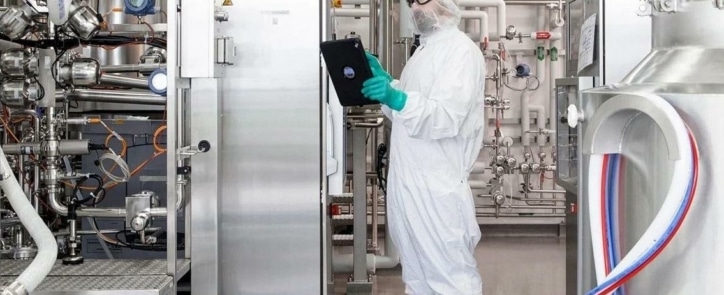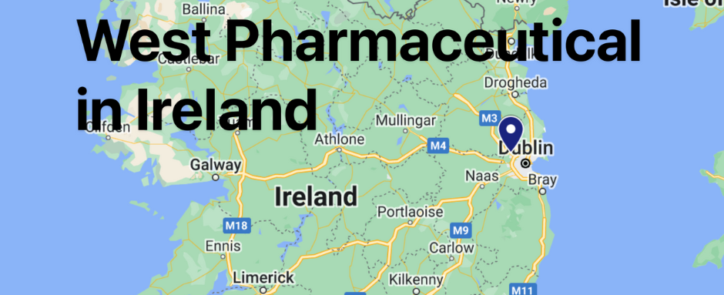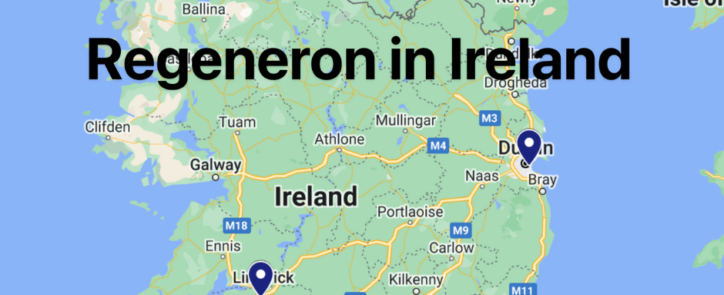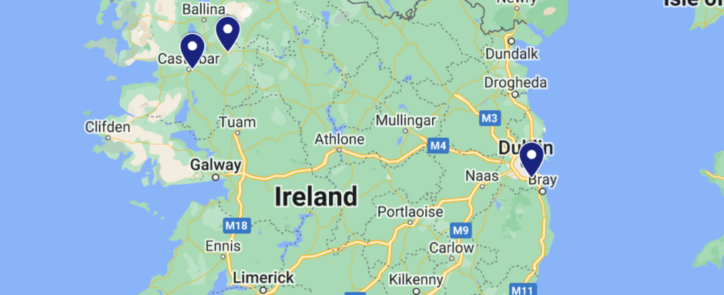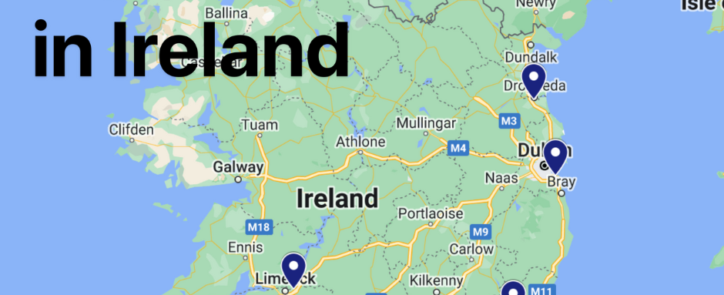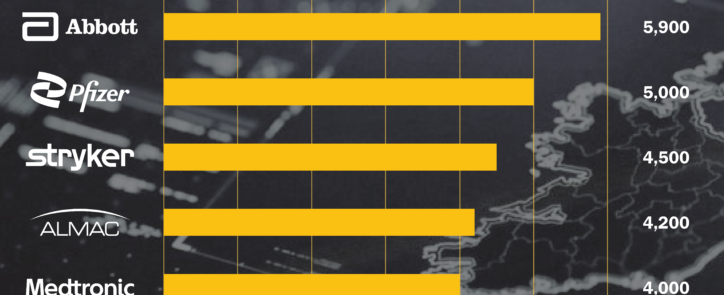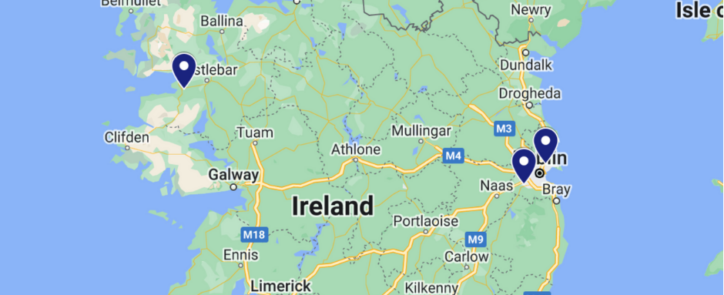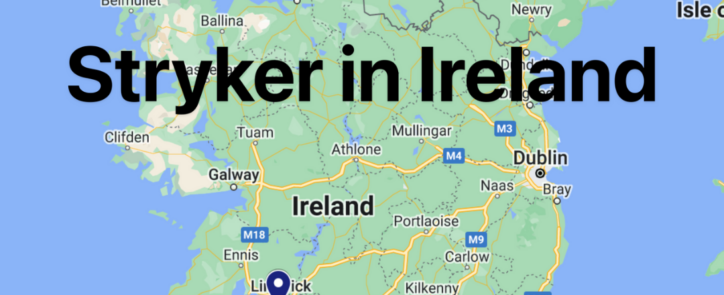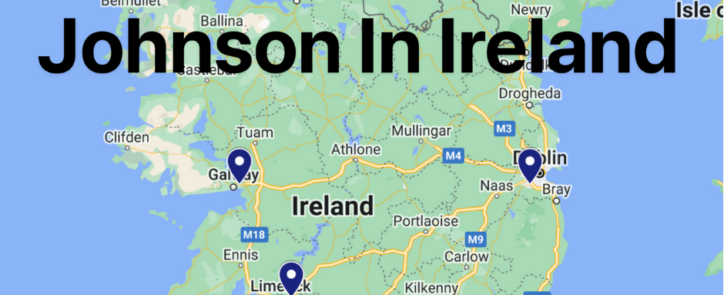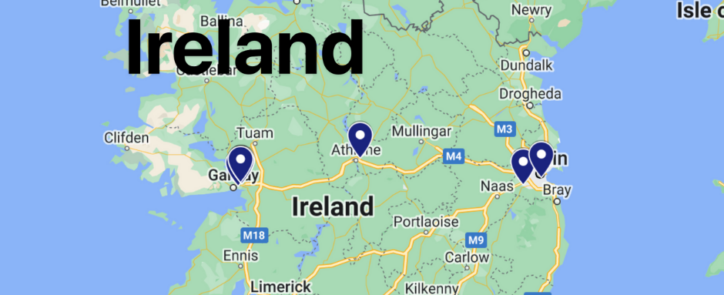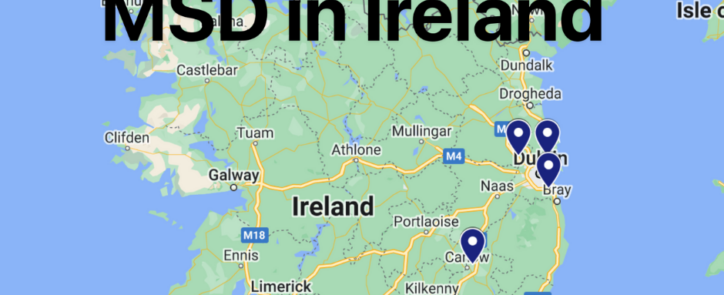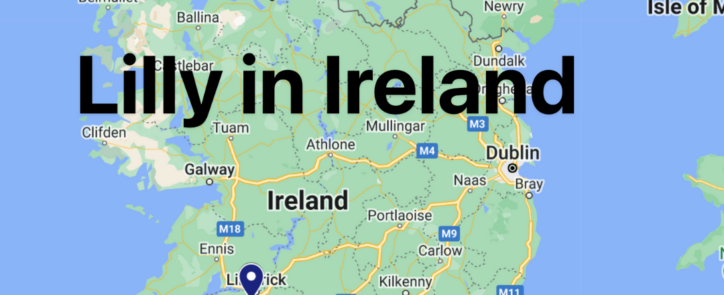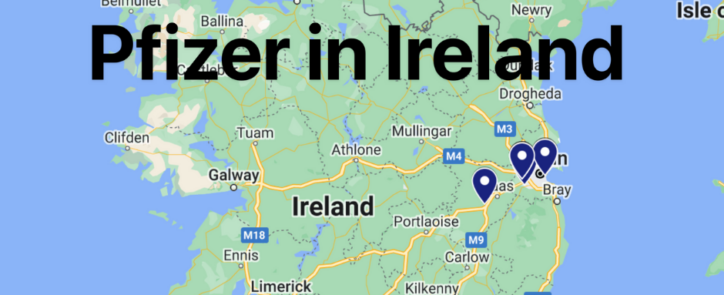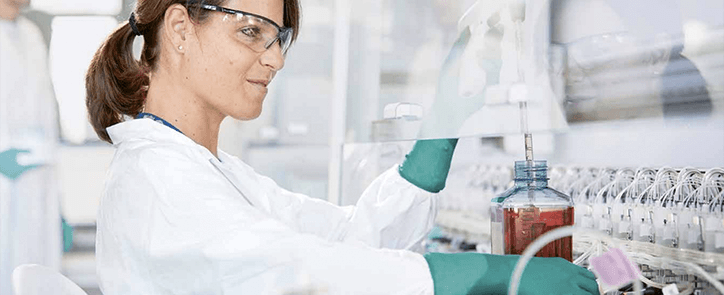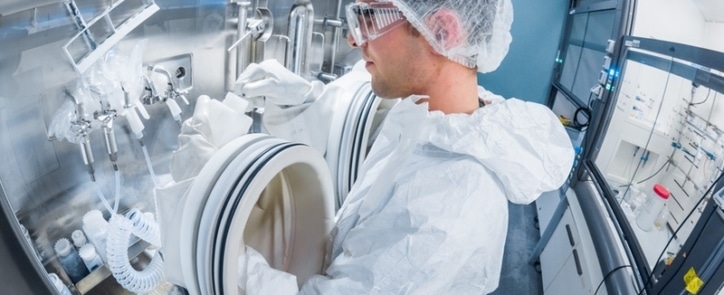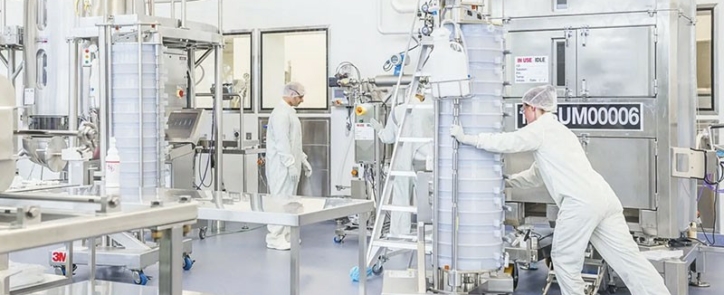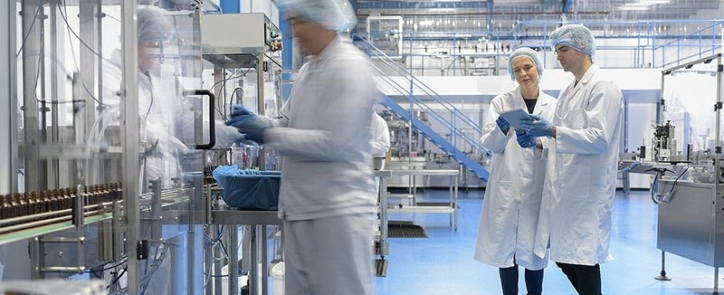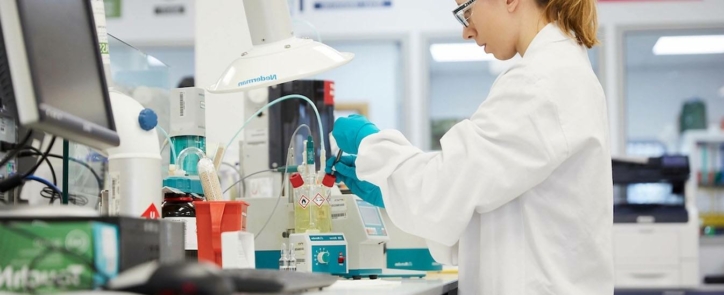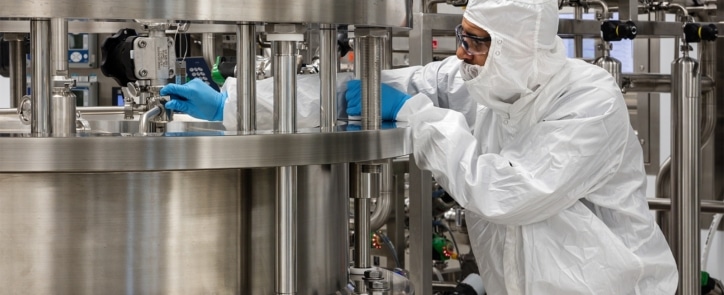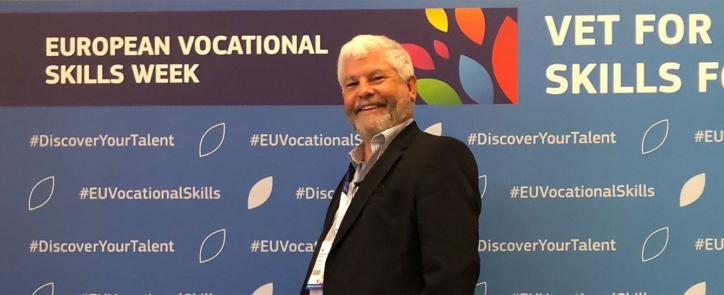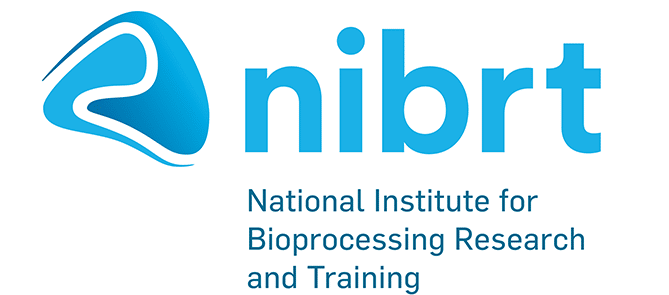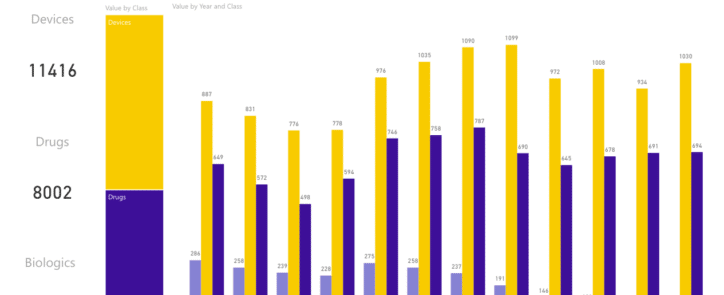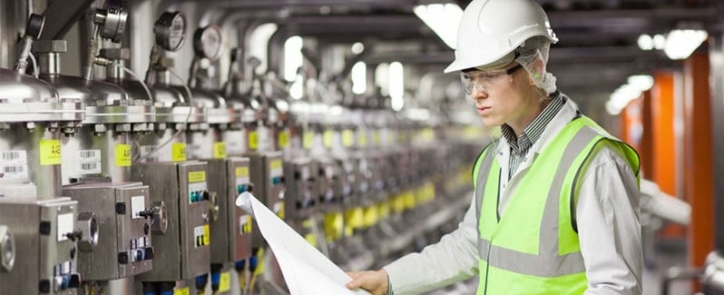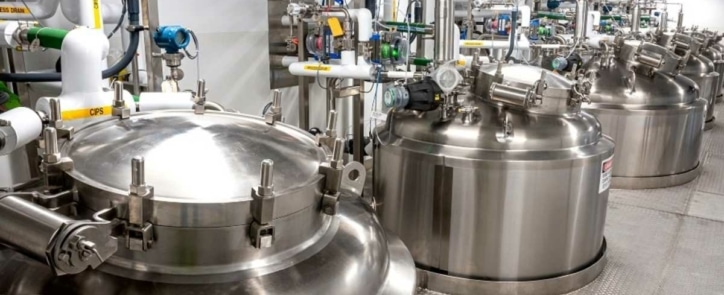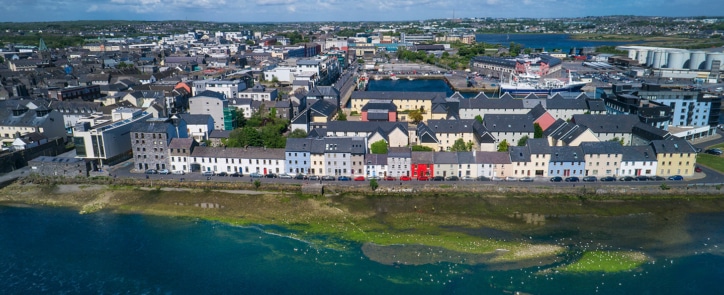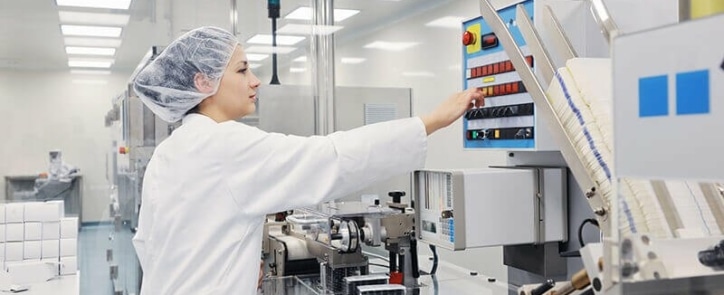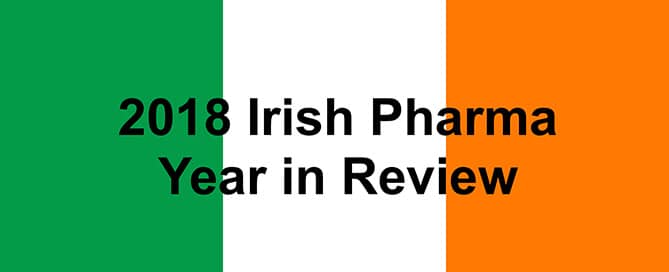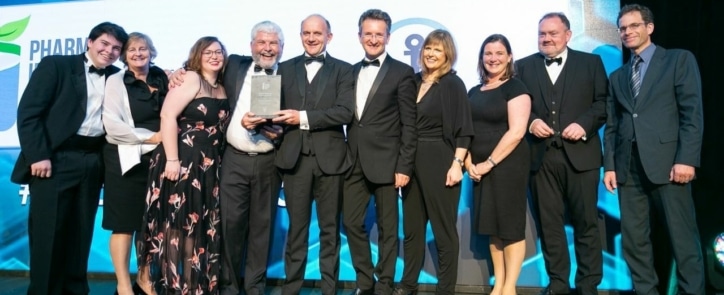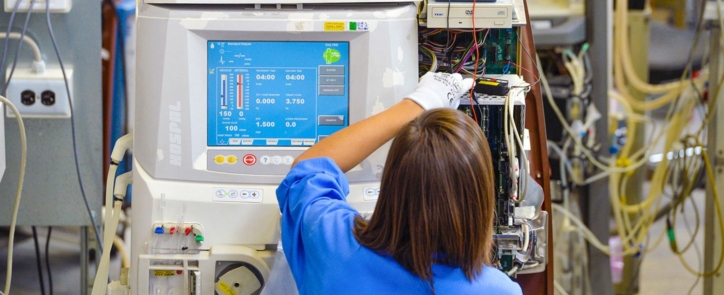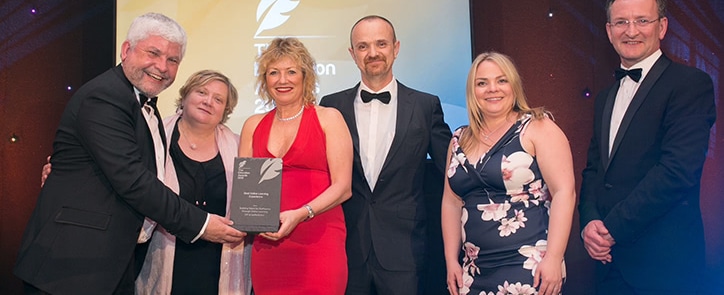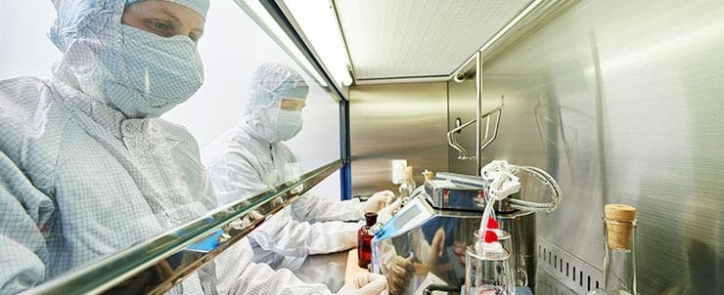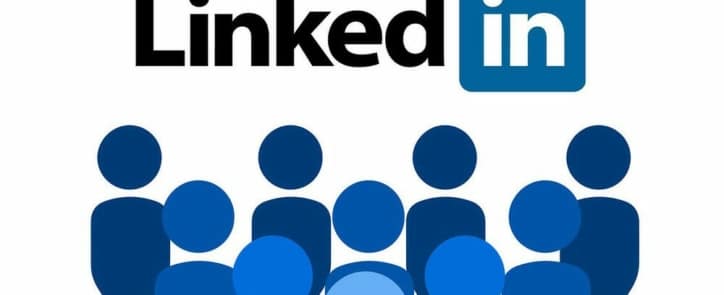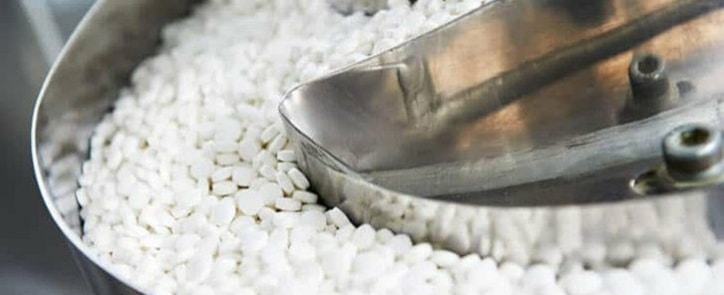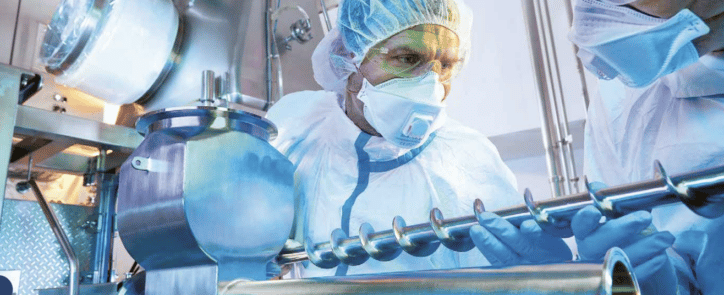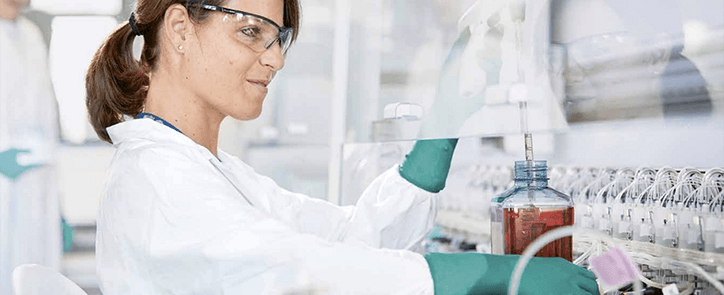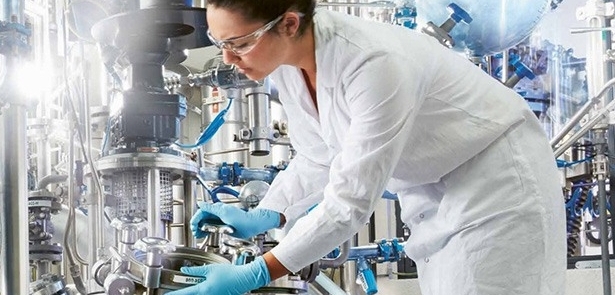We take a look at industry expert opinions, real job advert data and recent job announcements to consider whether a move into pharma and medical device manufacturing is still a great career choice in 2025.
The Easy Switch from Semicon to Pharma
Moving from semicon to pharma is an easy career change. There are a lot of similarities between the industries and if you've worked in semicon, you've got skills that pharma employers want.
Irish Pharma Jobs Safe for the Next 10 Years – Here’s Why
Becton Dickinson & Company (BD) was founded in 1897 in New Jersey, US and was a pioneer in the production of hypodermic needles. Today, it is the 8th biggest Medical Device company in the world (based on 2023 revenue), employing 75,000 people in over 50 countries. In Ireland, the company currently employs over 1300 people across 3 manufacturing sites (in Dublin, Louth and Wexford) and 2 R&D facilities (in Dublin and Limerick).
West Pharmaceutical Services in Dublin and Waterford, Ireland
West Pharmaceutical Services was founded in 1923 in Philadelphia, Pennsylvania by Herman O. West. The company designs and produces packaging containment and drug delivery products for injectable medicines. In Ireland, West Pharmaceutical Services operate 2 manufacturing facilities (one in Dublin and one in Waterford) as well as a Global Financial Services Centre, employing over 1200 people across these 3 sites.
Regeneron in Dublin and Limerick, Ireland
Biopharmaceutical company Regeneron was founded in 1988, by physician-scientists in New York, USA. Regeneron moved into Ireland in 2013 and now has offices in Dublin and a manufacturing site in Limerick. Today, the company employs approximately 1500 people in the country.
Baxter in Dublin and Mayo, Ireland
Baxter began in the 1930s by launching the first commercially prepared intravenous solutions. It has grown to be the 11th biggest MedTech company in the world (based on 2023 revenue). The company employs almost 2000 people in Ireland, across sites in Dublin and Mayo.
Integer in Galway & Wexford, Ireland
Integer is a contract development and manufacturing organisation (CDMO) for medical devices. The company was formed in 2015 when Greatbatch Inc acquired Lake Region Medical, and was renamed Integer in 2016. Integer has 4 sites in Ireland - 3 in Galway and 1 in New Ross, Wexford - and currently employs over 1700 people in the country.
Bausch + Lomb in Waterford, Ireland
Bausch + Lomb began in Rochester, New York in 1853, as an optical goods store. Today, Bausch + Lomb employs approximately 13,300 people in over 100 countries. Their manufacturing facility in Waterford, Ireland opened in 1980 has grown to become Bausch + Lomb's biggest manufacturing site worldwide and Waterford's largest private employer.
Viatris in Dublin, Cork and Galway, Ireland
Viatris was formed in late 2020 through the merger of Mylan and Upjohn. The company make products in therapeutic areas including oncology, infectious disease, women’s health, neurology and rheumatology. There are 5 Viatris sites across Ireland in Dublin, Cork and Galway - 4 manufacturing facilities and 1 office complex.
BD in Dublin, Limerick, Louth and Wexford in Ireland
Becton Dickinson & Company (BD) was founded in 1897 in New Jersey, US and was a pioneer in the production of hypodermic needles. Today, it is the 8th biggest Medical Device company in the world (based on 2023 revenue), employing 75,000 people in over 50 countries. In Ireland, the company currently employs over 1300 people across 3 manufacturing sites (in Dublin, Louth and Wexford) and 2 R&D facilities (in Dublin and Limerick).
Top 10 Pharmaceutical and Medical Device Companies in Ireland by Workforce
By Donagh Fitzgerald and Claire Wilson. Last Updated: April 2025 Ireland has a world-renowned reputation for pharmaceutical and medical device manufacturing. The country is home to 9 of the world’s top 10 pharmaceutical companies and 18 of the top 25 MedTech companies by annual sales and revenue. [...]
AbbVie in Cork, Dublin, Mayo and Sligo in Ireland
AbbVie was formed in 2013 when Abbott Laboratories separated into two publicly traded companies. AbbVie would operate as a research-based pharmaceutical manufacturer that specialises in making small molecule drugs. The company focuses on therapy areas such as immunology, oncology, neurological disorders and metabolic diseases. They are most well known for the rheumatoid arthritis treatment, Humira.
Stryker in Cork and Limerick, Ireland & Belfast, NI
Dr. Stryker founded his company in the U.S in 1941, aiming to make products that met patients’ previously unmet healthcare needs. Today, Stryker is one of the biggest medtech companies in the world. They have seven sites located across Ireland - five manufacturing sites and an R&D Innovation Centre in Cork, and a manufacturing site in Limerick. They also have a manufacturing site in Belfast, Northern Ireland.
Johnson & Johnson in Cork, Dublin, Galway, Limerick and Mayo, Ireland
Johnson & Johnson is a US-based multinational company that was founded in 1886 with the initial idea that wounds should be treated and dressed using sterile equipment. Over time it has grown to be one of the biggest healthcare companies in the world. In Ireland, there are more than 5,000 people employed across sites in Cork, Galway and Limerick.
Medtronic in Galway, Athlone and Dublin in Ireland
Medtronic began as a medical supply repair shop in the US in 1949. When they moved into medical device manufacturing, their first commercial product was a battery-powered, wearable pacemaker. Today, they aim to develop and manufacture technology that improves the treatment and management of chronic conditions. In Ireland, the company employs more than 4,000 people across 5 sites in Galway, Athlone and Dublin.
MSD in Carlow, Cork, Dublin, Meath and Tipperary in Ireland
MSD was founded in 1891 and has grown to be the world’s seventh-largest pharmaceutical company. MSD began production in Ireland in 1976. They have so far invested over $4 billion in the country, developing six sites across five counties – Carlow, Cork, Dublin, Meath and Tipperary. Today, they employ approximately 2,800 in Ireland and export products made there to over 60 countries. The company’s annual turnover makes them one of Ireland’s top 20 companies.
Lilly in Cork and Limerick in Ireland
Colonel Eli Lilly started the company in 1876. His motto to his employees, and all that followed within the company, was: “Take what you find here and make it better and better.” In 1923, Lilly launched the first commercially available insulin product. Their focus on diabetes care continued and in 1982, the company launched Humulin – insulin that was manufactured but identical to that produced by the human body.
Abbott in Cavan, Donegal, Dublin, Kilkenny, Longford, Sligo and Tipperary in Ireland
Abbott was founded in 1888 by Dr Wallace C. Abbott in Chicago, USA. The company is involved in the research, development, manufacture, and marketing of a range of products. Their portfolio spans the breadth of healthcare including medical devices, diagnostics, branded generic pharmaceuticals, and nutritionals.
Boston Scientific in Cork, Galway and Tipperary in Ireland
Boston Scientific is one of the biggest MedTech companies in the world – employing over 41,000 people around the world and selling products in 115 countries. The company was founded in 1979 with the aim of creating less invasive medical devices and procedures, and they continue to innovate across expanding areas of medicine. Today, their medical devices are used to diagnose and treat patients with issues in the areas of cardiology, urology, endoscopy and many more.
Pfizer in Cork, Dublin and Kildare, Ireland
Pfizer is the world’s largest research-based pharmaceutical company with operations spanning the globe. Its research headquarters are located in Groton, Connecticut, America. Pfizer develops and produces vaccines and medicines for a range of conditions in the areas of oncology, infections and infestations, cardiology, ophthalmology, neurology and psychiatry. It has been in Ireland for over 50 years and currently has 3 manufacturing plants located there.
Good Manufacturing Practices (GMP) Guide (Without Jargon)
What are good manufacturing practices (GMP)? Good Manufacturing Practices (GMP) – are a set of product quality regulations that have the force of law and require that manufacturers and packagers of medicines and medical devices take steps to make sure their products are safe, pure and effective.
6 Top Skills for Entry-Level Pharma Manufacturing Jobs in the UK
What does the ideal candidate for an entry-level job in pharma manufacturing look like? We’ve analysed job adverts from pharma employers across the UK to find out. In this article we’re specifically looking at “soft” or transferable skills, counting down to the most popular. No matter what your educational background or work experience is, it’s likely that you can boost the case for yourself as a suitable candidate by demonstrating you have these skills. And while this is a good general guide, the most important thing to remember is to carefully read each individual job advert and highlight the skills mentioned within it as your tailor your CV for that application.
The Pharma Industry on YouTube – GetReskilled
Whether you're trying to get to grips with what working in the industry "looks" like or you're preparing for an interview, it's always valuable to hear directly from employers. YouTube is a great place to do this. Not every company has a YouTube channel but those that do, are a really valuable resource. We've [...]
England’s North West Pharmaceutical and Med Device Companies
By: Claire Wilson. Last Updated: July 2023 Image: Danone UK North West Pharmaceutical Industry and MedTech Sector at a Glance Employs 25,500 people across the North West Turnover of £6,072m Generates 38% of all UK pharmaceutical output Home to Alderley Park, the UK’s largest [...]
26 Myths, Misconceptions and Observations About Finding a Job in Pharma and Medical Device Manufacturing
By: Claire Wilson BSc and Donagh Fitzgerald B.Prod Eng. Last Updated: February 2024 Image: Körber What are some of the biggest myths about trying to find a new job within the pharmaceutical or medical device manufacturing industry? And what are some of the things [...]
The Thriving Life Science Sector in Wales
By: Claire Wilson. Last Updated: July 2023 Image: tradeandinvest.wales Welsh Life Science Sector at a Glance Employs over 12,000 people across 360 companies Annual turnover of over £2bn Average of 5% growth in recent years 20% more life science companies per capita than the [...]
The Best Pharma & MedTech Podcasts
By: Claire Wilson and Sinead Creaner. Last Updated: April 2022 Whether you're in the industry and trying to stay up-to-date, or looking to start a career in pharma or medtech and trying to get to grips with the environment, keeping of top of industry developments isn't easy. [...]
Take a look inside the UK’s pharma plants
By: Claire Wilson. Last Updated: April 2022 Image: Takeda If you're trying to make a career change into pharma or medical device manufacturing, it can be difficult to really picture what it might involve. Strict rules and regulations mean that you're unlikely to be able [...]
The Latest UK Pharma Manufacturing Job Announcements
Keeping up with new plant announcements, expansion plans, and brand new companies is a great way to find out about the latest opportunities within your commutable area. But it can also be prohibitively time-consuming. So we've decided to give you all the benefits with none of the time-draining difficulties! In this post, [...]
6 Easy Steps to Planning Your Career for the Pharmaceutical Industry
By: Claire Wilson. Last Updated: April 2022 You should do more than just plan for your first job in the pharma industry - you should plan for a career. Many people make the mistake of stumbling through their career - waiting for opportunities to present themselves and [...]
What Type of Jobs Can Engineers Get in the Pharma Industry?
By: Donagh Fitzgerald. Last Updated: April 2022 Image: Masterflex UK What Kind of Jobs Can Engineers Get in the Pharma Industry? There are an enormous variety and range of engineering disciplines so it can be a real challenge to figure out what kind of jobs [...]
VET Awards success 2019
by Gerard Creaner (President, GetReskilled) I’m absolutely delighted to announce that GetReskilled and Technological University Dublin finished 2nd in our category at the European Commission Vocational Education Training (VET) Excellence Awards 2019. Just to be recognised at a European level is a real honour. I’m really proud to be bringing home [...]
Top Pharmaceutical and Medical Device Companies in Waterford
By: Claire Wilson. Last Updated: January 2025 Waterford’s Pharma Industry at a Glance Over 4,600 people are directly employed by Pharmaceutical and Medical Device companies in Waterford. Many more are employed indirectly. More than 10 companies have manufacturing sites. BTW, if you are [...]
5 Key Takeaways from NIBRT’s “Careers in Biopharma” Event
By: Gerard Creaner and Claire Wilson. Logo: NIBRT We attended NIBRT’s annual Careers in Biopharma event in Dublin early this year with over 15 top pharmaceutical companies and 500+ prospective employees This is the number 1 pharma careers fair in Ireland. The day consisted of presentations [...]
Top Pharmaceutical and Medical Device Companies in Limerick
By: Claire Wilson. Last Updated: January 2025 Limerick's Pharma Industry at a Glance Almost 6,000 people directly employed by Pharmaceutical and Medical Device companies in Limerick. Many more are employed indirectly. Limerick consistently ranks in the top 3 counties for available Pharmaceutical and Medical Device jobs in [...]
How to Save Money with SOPs that Stand the Test of Time
By: Dr. Joe Brady and Gerry Creaner B.Chem Eng. The pharmaceutical industry invests a significant amount of time and money every year writing and updating Standard Operating Procedures (SOPs). But it doesn’t appear to be having an impact on the number of 483’s issued by the [...]
The Best Pharma Companies in Ireland… by their Employees (2025)
By: Donagh Fitzgerald and Claire Wilson. Last Updated: Feb 2025 GET UPDATES What are the best pharma companies to work for? (according to their employees) There are several metrics you can use to decide the “best” company. What employees say should definitely be considered. We’ve taken employee submitted [...]
Scotland’s Booming Pharmaceutical Industry
By: Claire Wilson. Last Updated: January 2025 Photo: Global Manufacturing Scotland's Pharma Industry at a Glance Over 5,600 people directly employed by Pharmaceutical Companies in Scotland The industry exports over £575 million worth of manufactured goods Salaries per head are around £11,000 higher than the Scottish average [...]
Take a look inside Ireland’s Pharma plants
Due to the strict rules and regulations of the pharmaceutical and medical device industries, you typically can’t just take a tour of the manufacturing plants. But whether you’re preparing for an interview or you’re just interested to see what the inside of a pharma manufacturing plant actually looks like, we’ve got the next best thing…
Top Medical Device & Pharmaceutical Companies in Galway
By: Claire Wilson. Last Updated: February 2025 Galway's MedTech Industry at a Glance Over 11,700 people directly employed in Pharmaceutical & Medical Device Manufacturing Home to manufacturing sites for 3 of the world's top 15 medical device companies More than 25 companies have manufacturing sites in the county [...]
Top 10 Pharmaceutical and Medical Device Companies in the UK
By: Claire Wilson. Last Updated: August 2023 The United Kingdom is a world-renowned leader in pharmaceutical and medical device manufacturing. These industries are well-developed and growing strongly throughout the country. At present, 7 of the Top Pharmaceutical Companies in the World have a manufacturing presence in the UK [...]
2018 Irish Pharma Year in Review
What Was New in 2018? Several new facilities opened across Ireland in 2018, including... Agilent On November 16th, Agilent officially opened its new purpose-built R&D extension within its Little Island, Cork site. This new facility will allow both cell analysis and biosensor development. The opening also marked the company's integration of the newly [...]
GetReskilled WINS at the Pharma Industry Awards 2018
Please note that DIT has changed its name to Technological University Dublin. We are thrilled to announce that GetReskilled and DIT have been awarded the Pharma Education & Training Award at the Pharma Industry Awards 2018! Our joint programme, the BSc in the Manufacture of Medicinal Products was announced as the category [...]
Pharmaceutical and Med Device Companies in Dublin
By: Claire Wilson BSc. Last Updated: January 2025 At a Glance Over 10,500 people directly employed in Pharmaceutical and Medical Device Manufacturing Home to manufacturing sites for four of the world's top 15 pharmaceutical companies More than 33 companies have manufacturing sites Many more have R&D, corporate and business [...]
What is a Manufacturing Technician and what do they do?
By: Donagh Fitzgerald BEng and Claire Wilson BSc. Last Updated: July 2024 Manufacturing Technicians set up, run and monitor (non-chemical or non-biochemical) manufacturing processes to transform individual parts, sub-assemblies, and materials using machining, cutting, assembling, 3D printing, bolting, welding, forging, etc into distinct products (cars, phones, TVs, [...]
Top Pharmaceutical Companies in Cork in 2025
By: Claire Wilson BSc. Last Updated: January 2025 Cork's Pharma Industry at a Glance Over 14,100 are people directly employed by Pharmaceutical and Medical Device Manufacturing Companies in Cork - many more are employed indirectly Home to seven of the world's top 15 pharmaceutical companies At [...]
Winner – Best Online Learning Experience 2018
We’re absolutely thrilled to announce that GetReskilled and Dublin Institute of Technology (DIT) were awarded the title of Best Online Learning Experience 2018 at The Education Awards 2018! On Thursday 19 April 2018 at the Ballsbridge Hotel in Dublin, attendees from across the education sector gathered to hear the results and reflect on [...]
List of 195 Pharmaceutical & Med Device Companies in the UK
By: Claire Wilson. Last Updated: January 2024 Check out this pharmaceutical and medical device company career page directory to help you with your job hunt. It includes over 195 links to: Multinational & Local Companies Companies Without Career Pages Engineering Consultancies Recruitment Companies Contract Services Job Websites Relevant LinkedIn Groups [...]
What Types of Careers are there in the Pharmaceutical Industry?
By: Claire Wilson and Donagh Fitzgerald. Last Updated: July 2024 There are a huge variety of careers available in the pharmaceutical industry from laboratory-based research and development, clinical trials, regulatory affairs, manufacturing, engineering, quality assurance, quality control, validation all the way through to marketing, sales and distribution. [...]
2022’s Top 20 LinkedIn Groups for Pharmaceutical Manufacturing Professionals
By: Claire Wilson and Donagh Fitzgerald. Last Updated: April 2022 Image: Promo Republic There are over 2 million LinkedIn groups - are you using them to your advantage in your pharmaceutical manufacturing career? Most people know about the benefits of LinkedIn - the social network for [...]
Top 10 Pharmaceutical and Medical Device Manufacturing Companies in the USA
By: Claire Wilson. Last Updated: April 2022 What are the 10 Pharma and Med Device Companies in the USA? The USA is the largest single market for pharmaceutical products in the world - accounting for approximately 47% of world pharmaceutical sales according to statista.com. In 2019, [...]
List of 150 Pharmaceutical & Med Device Companies in Ireland
By: Donagh Fitzgerald B.Prod Eng and Claire Wilson BSc. Last Updated: January 2025 Image: Boehringer Ingelheim Check out this pharmaceutical and medical device company directory to help you with your job hunt. Jump to the following lists Pharma & Med Device [...]
Why Ireland Attracts the World’s MedTech
By: Claire Wilson. Last Updated: April 2022 Image: Boehringer Ingelheim Today we’re showing you the reasons why the world’s medical technology (MedTech) companies find Ireland an attractive option - why reskilling into this stable and growing industry makes sense for tomorrow as well as today. Highly [...]
5 Reasons you Should Re-Skill into the Pharma and Med Device Industries
By: Donagh Fitzgerald and Claire Wilson. Last Updated: April 2022 Image: Boehringer Ingelheim There are a host of reasons why re-skilling into pharma and med device industries is a good idea, today we're giving you our top five. We’ve got a lot of exciting information to share [...]
